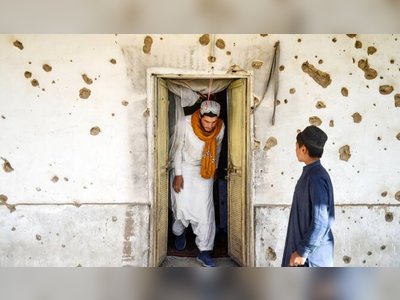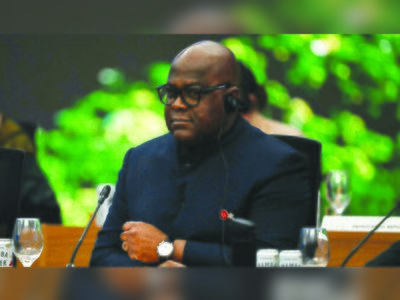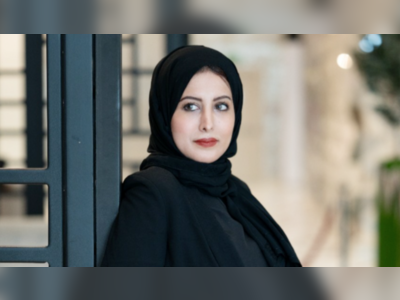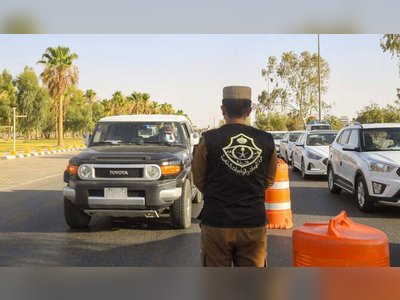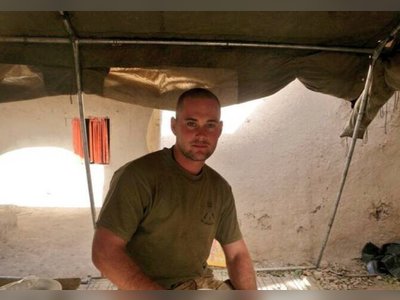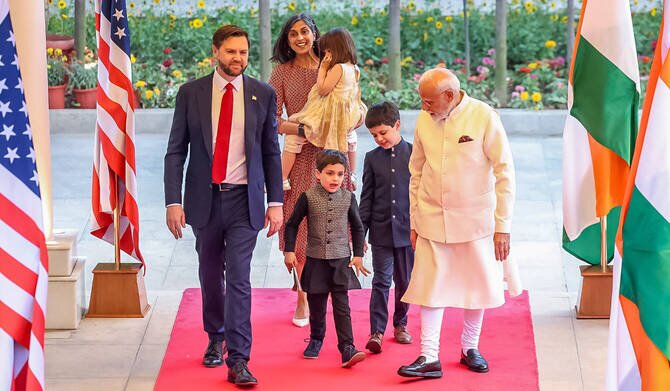
JD Vance's Hopes for Wife's Conversion Stir Debate on Interfaith Marriage
Expert advice emphasizes respect, honest discussions in interfaith relationships.
Vice President JD Vance recently expressed his hopes that his Hindu wife would convert to Christianity, reigniting the conversation about interfaith marriages.
The topic has experts weighing in on how interfaith couples can successfully navigate their religious differences.
Experts emphasize the importance of respect for each other's faith traditions and engaging in honest discussions about raising children within such diverse backgrounds.
According to them, pressuring or even hoping for one's partner to convert could prove detrimental to the relationship, especially when the couple is under public scrutiny like Vance and his wife.
Susan Katz Miller, author of 'Being Both: Embracing Two Religions in One Interfaith Family,' believes that respecting each other's identities is vital.
Miller suggests that having secret agendas for conversion is unlikely to result in a successful marriage.
Vance's comments have not gone unnoticed and have received criticism from organizations like the Hindu American Foundation, which has brought up historical instances of Christian attempts to convert Hindus and the rise of anti-Hindu rhetoric from some Christian sources.
The vice president addressed the backlash on social media, stating that his wife is a blessing in his life and that he hopes she may one day see things as he does.
He reaffirms his commitment to love and support her despite their differing faiths.
Interfaith marriage has become increasingly common, with recent surveys showing an increase in such unions compared to previous decades.
Experts note that interfaith couples have various options on how to handle religion within their relationship, including choosing one or both religions, adopting a new religion, or embracing no religion at all.
Vance and his wife have decided to raise their children as Christian, attending a Christian school and participating in Catholic sacraments.
Vance's conversion to Catholicism occurred five years into his marriage, with the couple incorporating Hindu rites into their wedding ceremony.
Religious conversion within interfaith relationships remains a complex issue.
The example of JD Vance's hopes for his wife's conversion reflects the personal challenges faced by interfaith couples when it comes to matters of faith.
Experts such as John Grabowski from The Catholic University of America emphasize the delicate balance in wanting one's partner to share their faith without pressuring them.
Dilip Amin, founder of InterfaithShaadi.org, believes that religious conversion for the sake of marriage should not be driven by external factors but rather by genuine change of heart.
Similarly, Ani Zonneveld from Muslims for Progressive Values points out the strain that can occur when one spouse's religious beliefs shift after marriage.
The interfaith experience has also been shared through media like Netflix's 'Nobody Wants This,' which explores themes of religious conversion in relationships between different faiths.
The show offers a glimpse into how real-life couples handle their decisions on matters of faith and the complexities involved.
Overall, experts agree that success in interfaith marriages hinges on mutual respect, open communication, and understanding each other's beliefs without exerting undue influence or pressure.
The topic has experts weighing in on how interfaith couples can successfully navigate their religious differences.
Experts emphasize the importance of respect for each other's faith traditions and engaging in honest discussions about raising children within such diverse backgrounds.
According to them, pressuring or even hoping for one's partner to convert could prove detrimental to the relationship, especially when the couple is under public scrutiny like Vance and his wife.
Susan Katz Miller, author of 'Being Both: Embracing Two Religions in One Interfaith Family,' believes that respecting each other's identities is vital.
Miller suggests that having secret agendas for conversion is unlikely to result in a successful marriage.
Vance's comments have not gone unnoticed and have received criticism from organizations like the Hindu American Foundation, which has brought up historical instances of Christian attempts to convert Hindus and the rise of anti-Hindu rhetoric from some Christian sources.
The vice president addressed the backlash on social media, stating that his wife is a blessing in his life and that he hopes she may one day see things as he does.
He reaffirms his commitment to love and support her despite their differing faiths.
Interfaith marriage has become increasingly common, with recent surveys showing an increase in such unions compared to previous decades.
Experts note that interfaith couples have various options on how to handle religion within their relationship, including choosing one or both religions, adopting a new religion, or embracing no religion at all.
Vance and his wife have decided to raise their children as Christian, attending a Christian school and participating in Catholic sacraments.
Vance's conversion to Catholicism occurred five years into his marriage, with the couple incorporating Hindu rites into their wedding ceremony.
Religious conversion within interfaith relationships remains a complex issue.
The example of JD Vance's hopes for his wife's conversion reflects the personal challenges faced by interfaith couples when it comes to matters of faith.
Experts such as John Grabowski from The Catholic University of America emphasize the delicate balance in wanting one's partner to share their faith without pressuring them.
Dilip Amin, founder of InterfaithShaadi.org, believes that religious conversion for the sake of marriage should not be driven by external factors but rather by genuine change of heart.
Similarly, Ani Zonneveld from Muslims for Progressive Values points out the strain that can occur when one spouse's religious beliefs shift after marriage.
The interfaith experience has also been shared through media like Netflix's 'Nobody Wants This,' which explores themes of religious conversion in relationships between different faiths.
The show offers a glimpse into how real-life couples handle their decisions on matters of faith and the complexities involved.
Overall, experts agree that success in interfaith marriages hinges on mutual respect, open communication, and understanding each other's beliefs without exerting undue influence or pressure.
